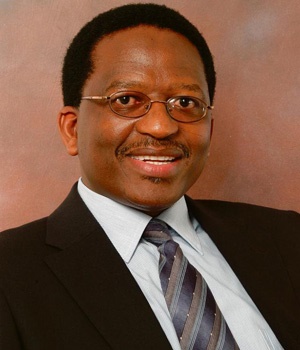
A top academic has warned that spiralling university fees are leading to the privatisation and commercialisation of higher education – to the exclusion of poor students.
Rhodes University vice-chancellor Sizwe Mabizela said the funding shortfall in higher education was forcing universities to rely more on fees for operational requirements, resulting in steep fee increases.
“Using student fees to address the financial shortfall in higher education creates a significant financial burden for students who come from poor, rural and working class communities as this makes higher education unaffordable. This also leads to the ‘privatisation’ and ‘commercialisation’ of public higher education, which is meant to serve a good public purpose,” he said.
Mabizela said this ahead of a transformation summit being convened by Higher Education Minister Blade Nzimande to tackle issues facing higher education, including the funding crunch.
Mabizela said for some universities, the percentage of state funding had declined to less than 50% of the university’s operating budget.
Universities South Africa, which represents higher education institutions, has complained that the current financial year’s equitable share to universities from government – which is R22 billion – was still about R12 billion short of the R36 billion they need to meet all their financial needs.
Protests over financial exclusions have flared up in many campuses countrywide and Nzimande has admitted there is very little government can do. “Despite significant efforts to obtain additional funding, the shortfalls are expected to continue. This will prevail until the economic situation in the country changes to enable full support of all financially needy and academically deserving students,” Nzimande said in reply to a parliamentary question earlier this year.
Nzimande has increased the budget of the National Student Financial Aid Scheme from R3 billion in 2009 to R6 billion.
Wits vice-chancellor Adam Habib said this amount was still not enough, adding that the issue of student funding was the biggest headache facing universities at the moment.
His counterpart at North-West University, Dan Kgwadi, also echoed the statement, saying universities and government needed to boost their efforts to accommodate needy students.
“We have many students who are excluded for financial reasons. It is our responsibility to support bright students who are academically needy. The worst thing is to exclude students for financial reasons,” Kgwadi said.
The issue of transformation in the higher education sector will also come into sharp focus at the Durban summit.
This follows ructions at a number of universities, especially at Stellenbosch and Cape Town, where pressure movements campaigning for transformation have notched up victories.
The Rhodes Must Fall campaign at the University of Cape Town succeeded in forcing the removal of the statue of Cecil John Rhodes, while Open Stellenbosch released its Luister video, which told of the experiences of black students on campus.
Mabizela said the issue of transformation in higher education had to be tackled head-on at universities.
“There are still experiences of racism, sexism, homophobia, patriarchy, gender-based violence, and other forms of bigotry and chauvinistic behaviours on some campuses. The transformation summit must make a clear and unmistakable statement that there is no place for this kind of behaviour in a civilised society.”




 Publications
Publications
 Partners
Partners








